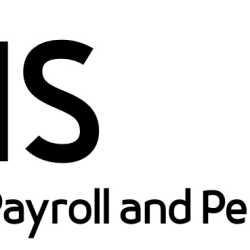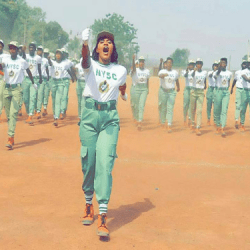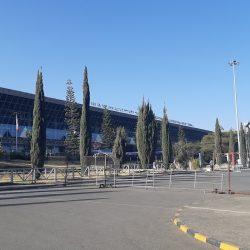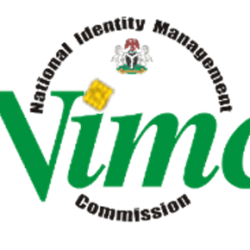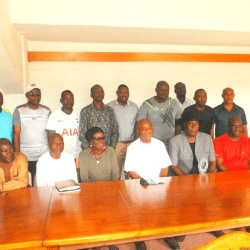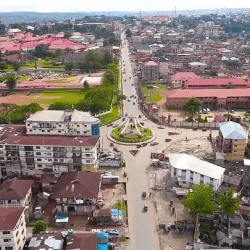

Paying to process call-up letters online is totally optional. It is not compulsory. NYSC made it optional because of the realization that not every corps member will need or can afford it. As said above, picking up call-up letters from schools have always been and remains the responsibility of prospective corps members. There are associated costs and risks to this, which varies for individuals. The situation of ‘Prospective Corps Member A’ who lives in Lagos and has graduated from a school in Lagos is definitely different from that of ‘Prospective Corps Member B’ who lives in Lagos but has graduated from a higher institution in Port Harcourt or Zaria or Bauchi. The costs and risks involved in going to the schools to pick call-up letters are clearly different for the two candidates. NYSC thinks it will be unfair to ask both of them to pay or force them to embrace the initiative. Apart from giving people the freedom to choose what suits them, the initiative is deliberately made optional to ensure fairness to all parties.
Why asking prospective corps members to pay N2,786.24 just to print call-up letters?
The N2,786.24 is not just for printing call-up letters. It is for the entire package of online registration, which requires the deployment of IT hardware and software and personnel to orientation camps all over the country but which also gives those who subscribe to it the advantage of processing their registration online, saving time during registration at the orientation camps and allowing them to use their thumbprints to identify themselves in case they lose or are dispossessed of their call-up letters. In the past, corps members who lose or are dispossessed of their call-up letters had to go through a cumbersome process of swearing affidavits, getting validation from their schools which takes time and may force them to enlist on another batch. With online registration, those who are unfortunate to lose their letters can identify themselves with their fingerprints. So the N2,786.24 fee is for the entire process and package of benefits.
Is the initiative not extortionist and insensitive?
As explained above, the initiative was designed with all sense of fairness and sensitivity. It is not extortionist, as extortion implies the use of open or subtle threat. No open or subtle threat is involved here. It is not compulsory and non-use of it carries no sanction. It is only for those who choose to exercise the option after doing their own cost-benefit analysis. NYSC is sensitive to the fact that not everyone needs or can afford this. Both those who need and can afford it and those who don’t need it or can’t afford it are given options to choose from.The initiative is thus both fair and sensitive.
Why not maintain the status quo?
Contrary to claims, the status quo remains. NYSC has not abolished the practice still allowed. What has happened is that an extra option has been introduced, which prospective corps members may choose or may not choose to exercise. Closing this new option will not necessarily be at zero cost to those who prefer the status quo, as prospective corps members have always been responsible for picking their call-up letters. But closing the option will be at the expense of those who will prefer it as this will rob them of their right to choose.
If this is so desirable, why can’t government fund the initiative?
Based on familiarity with current trends and feedbacks/requests from past and present corps members, NYSC is convinced that this is a very desirable initiative in this digital age and will be to the benefits of corps members. But given competing needs and shrinking government resources, NYSC realized that it would be necessary for it to seek alternative sources of funding for its various needs. Public-Private Partnership (PPP) approach is one of the approved available options for expanding the pool of resources to the Scheme. We are exercising this option to jump-start the comprehensive computerization of the operations of the Scheme. This was done with strict observance of due process and with appropriate certification/guidance from the Bureau of Public Procurement (BPP) and the Infrastructure Concession Regulatory Commission (ICRC). The choice before us was between starting the initiative for those who need and can afford it or waiting for the time government will be able to fund it fully. We chose the former in the interest of our prospective corps members who want and choose to avail themselves of this option.
Why can’t the ICT department of NYSC handle this?
The capacity of the ICT department of the Scheme has been enhanced over time and we will continue to improve our capacity in line with the needs of the digital age. But the scale of the operation will demand more personnel than we have at the moment and the procurement of IT infrastructure in all NYSC camps and all states of the federation, both of which we don’t have the resources for. Even if the staff members are there, the infrastructure is not there. That was why we opted for the PPP arrangement, with the provision that both the knowledge and the infrastructure will eventually be transferred to NYSC.
Will those who refuse to pay not be victimized?
They will not be victimized in any way. In fact, the plan is to ensure that there will be more NYSC staff attending to those who choose to use the physical method of collection because the use of online registration would have freed up staff time. NYSC has zero-tolerance for victimization and we will take strong disciplinary action against any staff member who shows such tendency.
Is it open to foreign-educated corps members?
Yes, it is open to them too and for the same amount. The usual practice was for prospective corps members educated outside the country to come to NYSC Headquarters in Abuja to process their call-up letters. Now they can stay wherever they are based and process their call-up letters online, if they choose to exercise that option. Also, prospective corps members educated outside the country do not need to come to Abuja for the verification of their certificates. Their uploaded certificates will be verified at the orientation camps in the state where they are deployed.
Reference: www.nysc.gov.ng/faq.html
